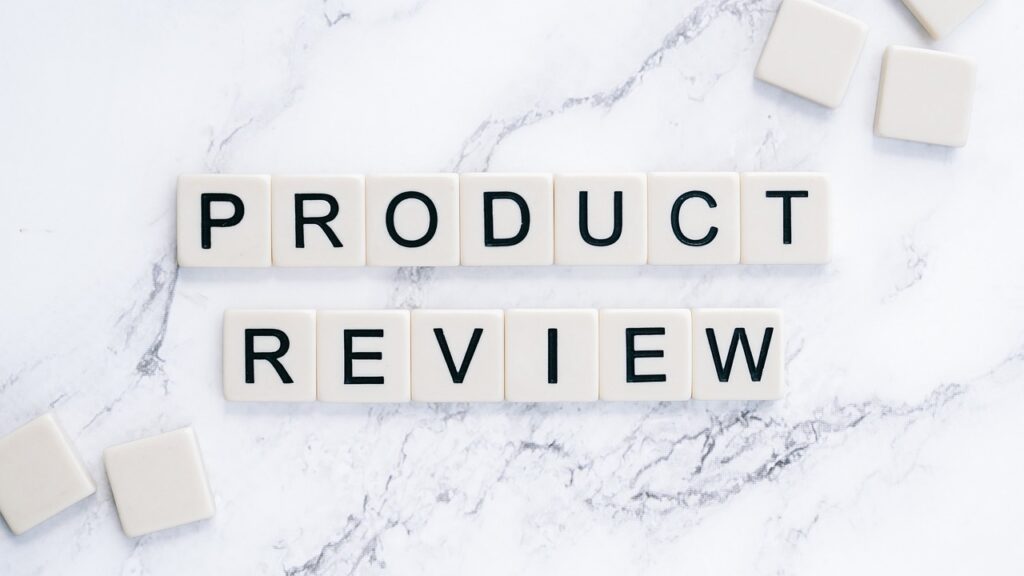Imagine finding yourself in a situation where you’re asked to review a product you haven’t tried out yet. This might sound complex, but it’s not as difficult as it seems. “Can I Review Products I Haven’t Tried?” is an engaging read that guides you on how to give an insightful review by relying on in-depth research of the product build, consumer feedback, and expert opinions. This approach lines you up with the expertise of professional reviewers dealing with novel and unreleased products. Let’s figure out how you can pull off a credible review without direct experience of the product!

Understanding Product Reviews
Product reviews are a crucial part of the buying process in today’s digital age. They offer potential buyers an honest insight into a product they are considering purchasing. Not only do these reviews influence purchasing decisions, but they can also help manufacturers understand what their customers like or dislike about their products, and any improvements that they could make.
Importance of product reviews
Product reviews are essential for several reasons. Firstly, they increase the credibility of a product or a brand. Shoppers are more likely to trust a product that has received positive feedback from others. Additionally, these reviews provide valuable information about the product, which can assist customers in making purchasing decisions. They also serve as a form of advertising; a product with a multitude of positive reviews will naturally attract more potential buyers.
Types of product reviews
Product reviews can generally be divided into two broad categories: consumer reviews and expert reviews. Consumer reviews are feedback from customers who have bought and used the product. They typically highlight the practical use of the product and whether it met their expectations or not. On the other hand, expert reviews are detailed analyses of products done by professionals in a particular field. They normally focus on the product’s technical aspects and compare it with other similar products in the market.
Preliminary Steps
Before you start writing product reviews, there are some preliminary steps you should take. These steps will ensure you have all the necessary information to write a detailed and accurate review.
Researching the product
Prior to writing a review, it’s crucial to research the product thoroughly. This includes understanding its features, specifications, and how it compares with competing products. Moreover, it’s also important to know the brand’s reputation and how it positions itself in the marketplace.
Understanding the customers’ needs and wants
Another important step is understanding what the customers want from the product. The best product reviews address these needs and help customers understand whether the product will meet these needs or not.
Ethical Considerations
Ethics play a vital role while writing product reviews. It’s important to always maintain professionalism and integrity while reviewing products.
Honesty and Transparency
When writing a product review, honesty is always the best policy. Your review should reflect your honest opinion about the product, whether positive, negative or neutral. You should also be transparent about any potential biases or incentives that could influence your review.
Implications of misleading reviews
Misleading or dishonest reviews can damage your reputation as a reviewer. They can also potentially lead to legal consequences. More importantly, they can harm consumers who rely on reviews to make informed buying decisions.
Pros of Reviewing Products without Trying
While reviewing a product without trying it might seem unethical, there are certain situations where this could be beneficial.
Reviewing a wider range of products
Without the need to physically use each product, you can cover a much wider range of products. This can provide your audience with a broader choice and more diverse information.
Saving times and resources
Reviewing products without trying them can also save you significant time and resources. You don’t need to wait for the product to arrive, use it thoroughly, and then draft a review.

Cons of Reviewing Products without Trying
Despite the advantages, there are also some substantial drawbacks to reviewing products without trying.
Lack of personal experience
The biggest disadvantage is the lack of personal experience with the product. Personal experience often adds substantial credibility to a review and provides insights that are often overlooked in general descriptions or specifications.
Risk of inaccuracy and misinformation
Another risk is the potential for inaccuracies or misinformation. Misunderstandings about a product’s features or specifications can lead to false information in your review.
Methods of Reviewing without Trying
When reviewing products you haven’t personally tried, there are some strategies you can employ to ensure your review is credible and accurate.
Using customer reviews and feedback
One of the best ways to gather information about a product is by reading customer reviews. These can provide real-world insights into how the product works and its pros and cons.
Relying on expert opinions and lab test results
Another method is to rely on expert opinions and lab test results. These can provide detailed information about a product’s performance and its features.

Writing a Convincing Review
Writing a persuasive review without personal experience requires some skill and strategy.
Establishing credibility
First, you need to establish your credibility. Even though you haven’t personally tried the product, your knowledge and understanding of it should come across in your review.
Providing in-depth information
Provide detailed information about the product. Describe its design, specifications, and features. Explain what it does and how it works.
Maintaining objectivity
Always maintain objectivity when reviewing products. Your review should present the facts about the product without letting your personal biases influence it.
Legal Considerations
When writing product reviews, it’s essential to understand the related laws and regulations to avoid potential legal complications.
Understanding laws on false advertising
False advertising laws are designed to protect consumers from misleading claims about products. If as a reviewer, you make false or unverified claims about a product, you could find yourself in violation of these laws.
Acknowledging sponsored content
If you have been paid or given a product for free in exchange for a review, it’s essential to disclose this to your readers. This is not just ethical but is also legally required in many jurisdictions.
Professionalism in Product Reviewing
Maintaining a professional attitude is crucial in product reviewing. This not only boosts your credibility but also builds trust with your audience.
Maintaining impartiality
Impartiality is key in product reviewing. Regardless of any personal preferences, your reviews should always be fair and unbiased.
Respecting intellectual property
Ensure you respect intellectual property rights when reviewing products. Any unauthorized use of copyrighted or trademarked material could land you in legal trouble.
Conclusion: Balancing Ethical Responsibility and Business Need
In conclusion, while it’s possible to review products without trying them, it’s a delicate balance between ethical responsibility and business need.
Evaluating necessity and feasibility
Assess the necessity and feasibility of reviewing a product without trying it. Is it necessary due to resource limits? Or is it feasible because of the plethora of information available?
Making informed decisions
Ensure you make informed decisions based on thorough research. Misinformation not only tarnishes your reputation but can also lead to legal consequences.
Continuous learning and improvement
Finally, ensure that you continually learn and improve based on feedback and experience. Honest self-evaluation can help you continually produce better, more accurate, and more reliable reviews.
Remember, your reviews hold a lot of power. They have the ability to influence buying decisions, shape perceptions about products and brands, and potentially even impact the course of a product’s success. Therefore, it’s essential to approach product reviewing with integrity, thoroughness, and professionalism. Whether you’re reviewing a product you’ve tried or not, your focus should always be on providing valuable, honest, and accurate information to your audience.






